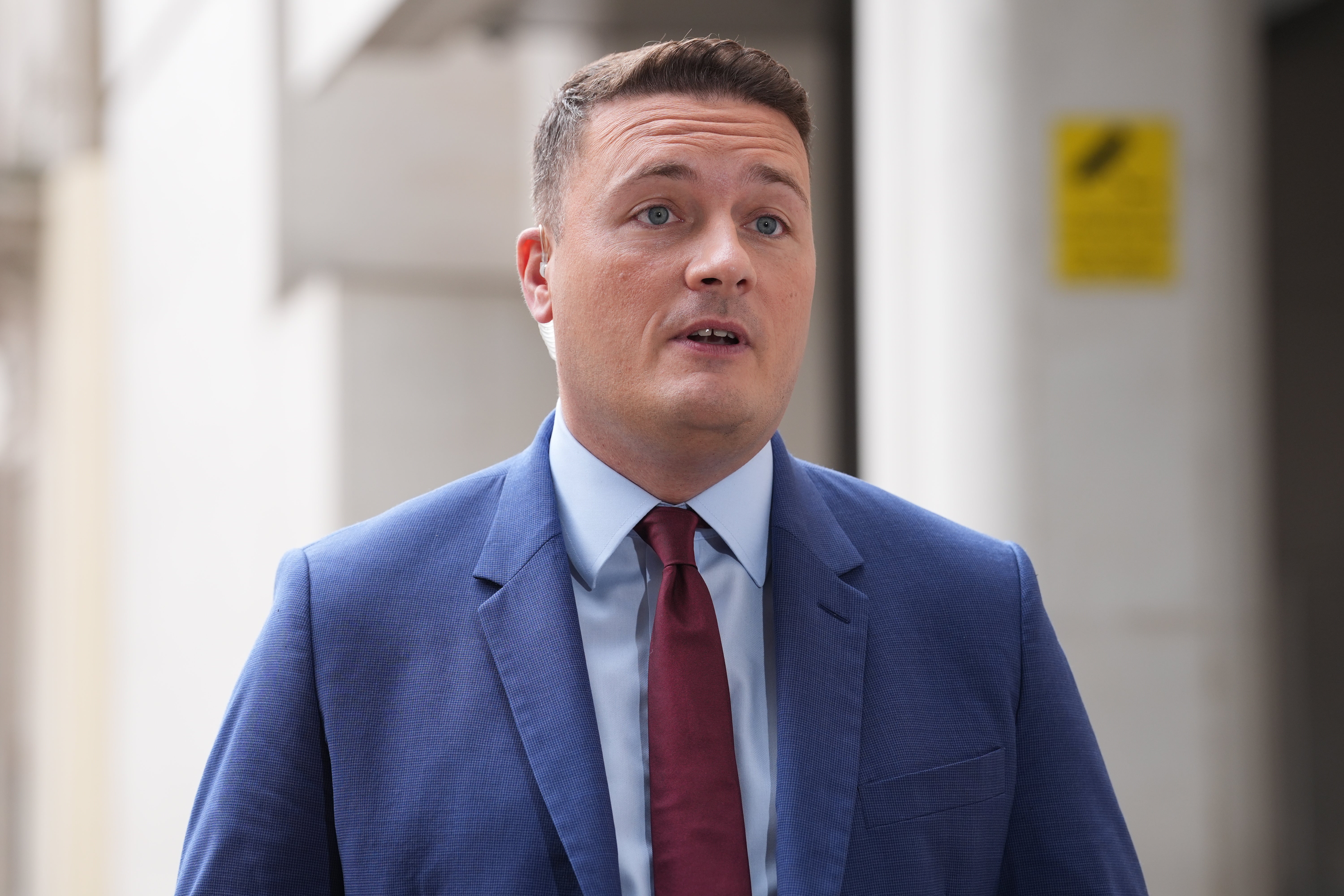Labour voters support junior doctors’ plans to stage a five-day walkout next week, even as public support for the strike collapses, according to a new poll.
Overall people oppose the industrial action due to start next Friday by a margin of 44 per cent to 34 per cent, pollsters More in Common found.
However, Labour voters support the strikes, with 47 per cent in favour and 35 per cent against, in a major challenge to the stance taken by the health secretary Wes Streeting who has vociferously pressed doctors’ leaders to ditch their plans.

Green voters also back the strike with 49 per cent in support, while others oppose it. Some 69 per cent of Tory voters are against the walkouts, followed by Reform voters (63 per cent) and Lib Dem voters (55 per cent).
Mr Streeting is set to hold last-ditch talks with doctors’ union leaders on Thursday in an effort to avoid the action, which he has warned could break the NHS.
Resident doctors, previously known as junior doctors, in England are set to strike from 7am on 25 July as part of a pay dispute with the government.
Professor Robert Winston, a Labour peer who became a household name through his documentaries on child development, has warned that the “highly dangerous” industrial action risks harming the public’s trust in the profession.
But the new leader of the British Medical Association (BMA), whose members voted in favour of strike action, has said that the doctors’ 29 per cent pay demand is “non-negotiable” and warned strikes could go on for years if the dispute is not resolved.
Mr Streeting has previously told the union that, after junior doctors received a 28.9 per cent pay rise last year when Labour entered government, the public would not understand why “you would still walk out on strike, and neither do I”.
The More in Common poll of more than 3,000 adults conducted between July 11 and 14, also found that many voters feel resident doctors are not paid enough, yet most think the pay rises in recent years have been fair.
The survey found 38 per cent think junior doctors are paid too little, 34 per cent think the right amount, and only 10 per cent think they are paid too much.

However, asked about the pay rises awarded over the past three years, overall 45 per cent said they have increased by the right amount, compared to 23 per cent who said they have not been generous enough. Some 19 per cent of people said they had been too generous.
However, such is the level of concern about the health service, the public may accept a further increase in junior doctors’ pay in order to prevent strikes. The majority of voters (58 per cent) of the public believes that preventing strikes later this month should be prioritised, even if it means spending more on doctors’ pay.
Luke Tryl, from More in Common, said: “When it comes to the prospect of resident doctor strikes, it looks to be lose-lose for everyone involved.
“The public tend to oppose the strikes, though trickily for the government, Labour’s own voters are far more supportive.
“Britons also tend to think the settlement the doctors have received is fair, and they risk ending up on the wrong side of a public who are themselves still struggling with the cost of living. But above all, the public don’t want strikes to further disrupt the NHS and grow waiting lists.”
The Department for Health and the BMA have been approached for comment.



